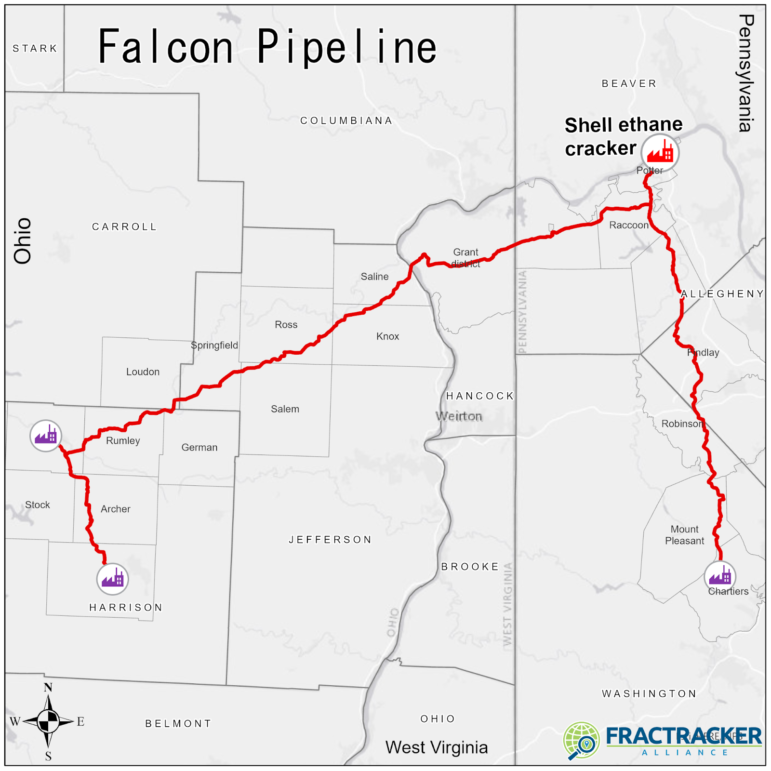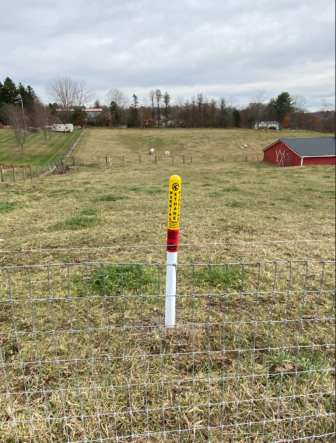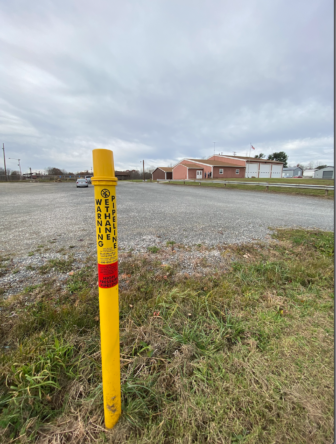During November I joined members of the Beaver County Marcellus Awareness Community (BCMAC) in Allegheny and Beaver counties in Southwestern Pennsylvania to canvass residents living near the Falcon Ethane Pipeline. The Falcon Pipeline is a 98-mile pipeline network through Pennsylvania, Ohio, and West Virginia that, if brought online, will transport ethane to the Shell Ethane Cracker in Monaca, Pennsylvania to be made into plastic.


These houses in Pennsylvania are some of the closest to the ethane pipeline, so close in fact the pipeline is running through backyards, under cow fields, and dogs and kids are playing on top of it.
While the pipeline is fully constructed, residents and the concerned public just learned in November via a Facebook post that the pipeline is now filled with ethane. The pipeline has been under investigation since 2019 by federal and state agencies, and a coalition of groups under the People Over Petro Coalition have been working to increase transparency and have safety concerns addressed by regulators before the pipeline comes online.
The Saturday we canvassed homes in Allegheny County was a beautiful day, warm for November and the sun was streaming down onto the new houses of the Maronda homes development. The only indication of the pipeline were innocuous orange markers traveling behind houses and visible off the side of the road. The majority of residents we spoke to had no idea they were living so close to an ethane pipeline. Many of the people living just across the street from the pipeline had just moved in within the past few months.
Canvassing the houses felt like shattering the perfect lives these families were starting to build. People we spoke to told us this was the cleanest air they had ever breathed despite being able to see a fracking flare from the top of the street. The house they had just moved into was a dream house they had saved years for.

One person we spoke to had no idea about the Falcon Pipeline but grew visibly agitated when we told him it was an ethane pipeline, like the Revolution pipeline in Beaver County less than 15 miles away that exploded in early morning in 2018.
The pipeline had been in service for just one week before exploding—destroying a building, killing animals, forcing dozens of residents to evacuate, and leaving 1,500 without power.
Despite this history of pipeline incidents in the area, none of the residents we spoke to remembered receiving safety information on the pipeline from Shell Pennsylvania Chemicals.
Residents deserve to know the safety risks and the implications of living near an ethane pipeline that crosses through backyards and underneath residential roads. They also deserve to know what safety measures have been put in place by the corporation and local EMS and how to evacuate in the event of an emergency.
If you live near the Falcon pipeline and would like to get involved with efforts to get more transparency and safety information on the pipeline please email anaïs at apeterson@earthworksaction.org.
If you are a local resident and would like to speak to an attorney regarding issues causes by pipeline construction you can contact the attorney at Mountain Watershed Association at: (724) 455-4200 ext. 7 or melissa@mtwatershed.com
For additional information on the Shell ethane cracker in Beaver County and health, safety, and monitoring resources: https://www.marcellusawareness.org/eyesonshell
To file a report on any environmental impacts you see with the Pennsylvania Department of Environmental Protection: http://www.depgreenport.state.pa.us/EnvironmentalComplaintForm/
For concerns about impacts to your well water, see Penn State’s resources for well water testing at: https://agsci.psu.edu/aasl/water-testing/drinking-water-testing
Your Support Makes Our Work Possible
Earthworks helps families on the front lines of mining, drilling, and fracking. We use sound science to expose health, environmental, economic, social, and cultural impacts of mining and energy extraction. To support our efforts, please consider a tax-deductible donation today that will go toward our work reforming government policies, improving corporate practices, influencing investment decisions, and encouraging responsible materials sourcing and consumption.
